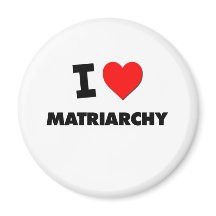One of the most frustrating usages for me in the criminalization literature is the reference to paternalism - basically the question of whether or not intervention by the state can be justified against the interests or wishes of the individual to protect them from themselves. The term seems to derive from JS Mill's essay
On Liberty and to me it retains a tone of stern Victorian patriarchy which feels out of place in contemporary discussion.
 |
| JS Mill: father of paternalism |
But I can be more specific about why I find the term annoying. First, as I indicated above the language seems anachronistic. The state is depicted in the role of the father or head of household who steps in to protect its charges, telling us that the prohibition is for our own good. And in the role of the father, it need not give reasons: you must do this because I say so. One big problem with this is that it already skews the argument. Like teenagers we want to resist this paternal authority, to try out the forbidden acts for ourselves. And, not surprisingly, like teenagers acting out theorists more often than not decide that paternalism is unjustified. We might also here focus on the question of why law should be coming from the father (with apologies to psychoanalytic theory). One interesting thought experiment here might be to substitute 'maternalism' for paternalism. Instead of the stern distant father telling us that it is for our own good, this might conjure up the image of the ideal mother - caring and loving - and perhaps it might be harder to resist the idea this kind of protection is unjustified. Of course these are stereotypes, but the point is that whether it is father, mother or parent this conjures up an unlikely and outmoded picture of the state that we are, of course, justified in resisting.
 |
| Matriarchy and maternalism? |
Second, it is not clear what we are talking about when we talk about paternalism. For Mill it was literally a matter of paternalism (or parentalism) - protecting children or those unable to make proper choices for themselves. But then there is slippage. We move from theorists talking about measures to protect the vulnerable, to measures to protect us from ourselves (no consent to assault, no taking drugs and so on), to measures such as the compulsory wearing of seatbelts or state regulation of risky activities. My problem here is that I have difficulty seeing how these very different kind of measures can be lumped together under the heading 'paternalism'. The first, protecting the vulnerable might just fit - though there are lot of issues about what, precisely, amounts to vulnerability in this context. The problem with the second category is that it just seems so individualist, with individual will or choice being the fundamental category - even if it we come down in favour of restriction, it is in the limiting of the will of the individual that must be justified. Freedom is understood as freedom from law, which seems to rule out the possibility that freedom might come through law - or proper consideration of many other relevant factors, like the social costs of certain activities, our mutual interdependence or any sense of the common good.

And when we come to the third category this problem is even more pronounced, in part because it seems to rely on such a sociologically naive concept of risk. In particular, with examples like seatbelts, we probably do not properly know the risks because they are so complex - the speed you drive at, the speed of others, the design of a car, of roads, of emergency response times, the availability of medical care and so on. The function of regulation here is in part to address this complexity and the impossibility of choice. Moreover, talk of paternalism just seems to wrench the whole issue out of any relevant social or political context. What is important here is not just a choice about whether or not to have law (or a criminal law), but also the role of insurance companies, of car manufacturers, of car design, the role of the state in providing health care and so on. This is not to say that we should not question or challenge the use of law or criminal law in these contexts, but only that we need to find an appropriate analytical framework - which is something that paternalism cannot provide.


 And when we come to the third category this problem is even more pronounced, in part because it seems to rely on such a sociologically naive concept of risk. In particular, with examples like seatbelts, we probably do not properly know the risks because they are so complex - the speed you drive at, the speed of others, the design of a car, of roads, of emergency response times, the availability of medical care and so on. The function of regulation here is in part to address this complexity and the impossibility of choice. Moreover, talk of paternalism just seems to wrench the whole issue out of any relevant social or political context. What is important here is not just a choice about whether or not to have law (or a criminal law), but also the role of insurance companies, of car manufacturers, of car design, the role of the state in providing health care and so on. This is not to say that we should not question or challenge the use of law or criminal law in these contexts, but only that we need to find an appropriate analytical framework - which is something that paternalism cannot provide.
And when we come to the third category this problem is even more pronounced, in part because it seems to rely on such a sociologically naive concept of risk. In particular, with examples like seatbelts, we probably do not properly know the risks because they are so complex - the speed you drive at, the speed of others, the design of a car, of roads, of emergency response times, the availability of medical care and so on. The function of regulation here is in part to address this complexity and the impossibility of choice. Moreover, talk of paternalism just seems to wrench the whole issue out of any relevant social or political context. What is important here is not just a choice about whether or not to have law (or a criminal law), but also the role of insurance companies, of car manufacturers, of car design, the role of the state in providing health care and so on. This is not to say that we should not question or challenge the use of law or criminal law in these contexts, but only that we need to find an appropriate analytical framework - which is something that paternalism cannot provide.
